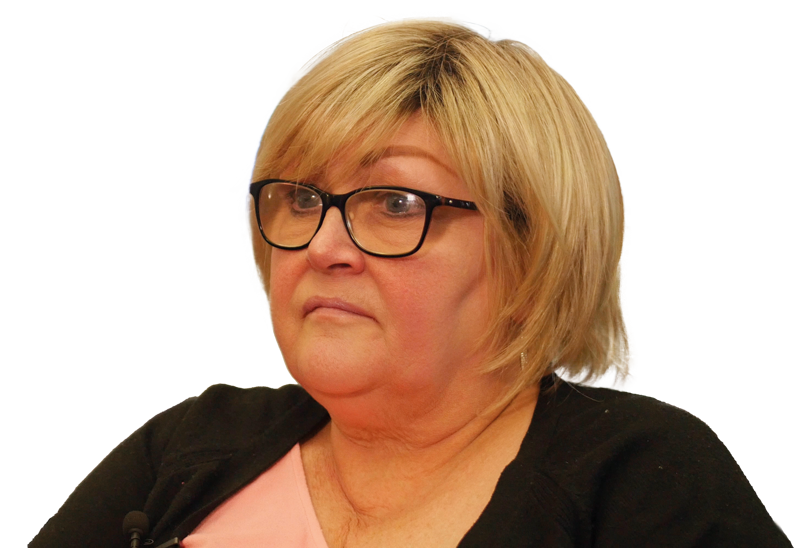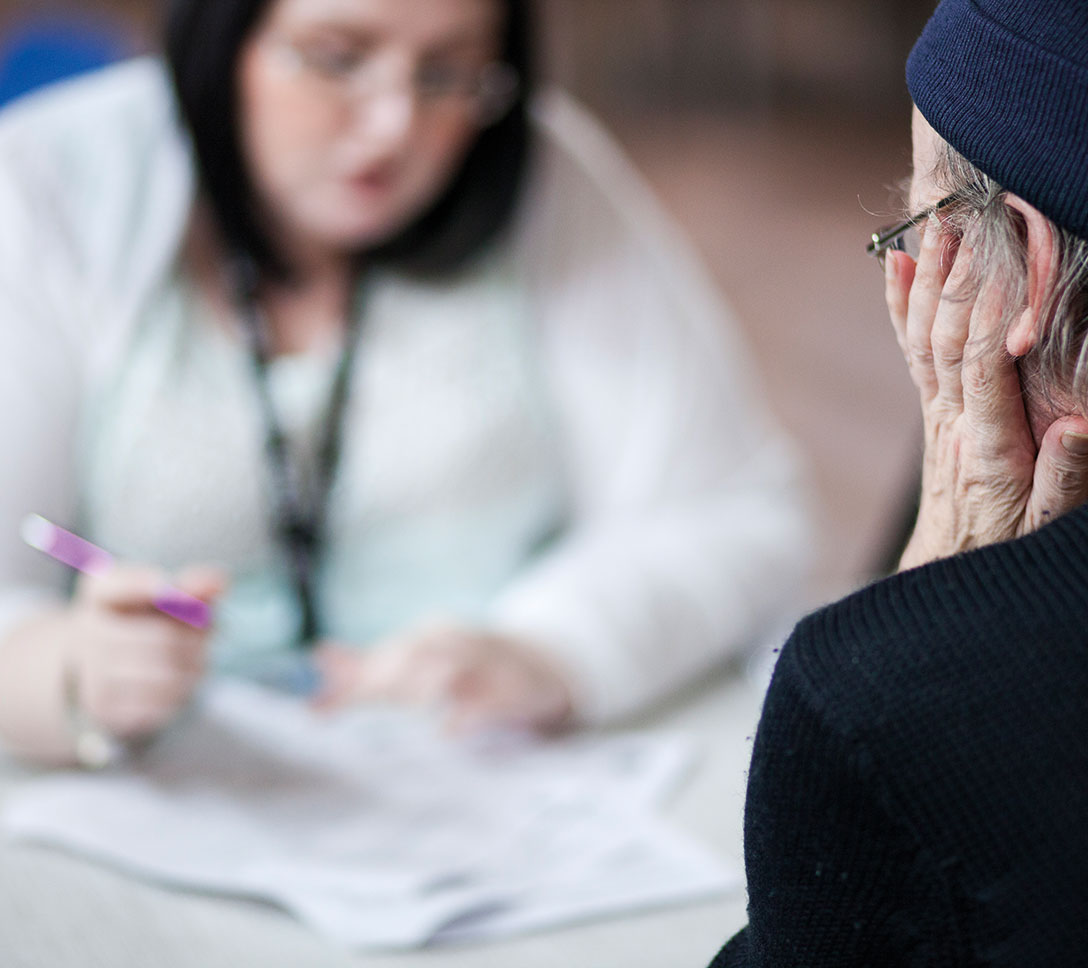Life-changing support
and campaigning for change
I have always hated injustice and I can’t think of any injustice greater than people not having enough money to feed themselves. We should not need to be here.”
Audrey, Glasgow South East Foodbank

That’s the view of Audrey, who runs Glasgow South East Foodbank. And it’s why, together, we’re working towards a UK where no one needs a food bank.
I was in social work for 25 years and it’s been 11 years since the food bank opened, so I can tell you – it’s not about food. It’s about people not having enough money. That’s what we need to tackle.
Audrey’s seen first-hand that most people who need food banks are between jobs, can’t work, or face barriers to finding stable, well-paid work. This is often because of disability, health problems or caring responsibilities for children or sick relatives.
Cuts and freezes to social security mean many people in precarious positions aren’t able to access the right support when their finances are hit by something outside of their control.
On top of that, the social security system can be difficult to navigate on a good day. Imagine trying to access it when you’re unwell, or have been hit by something life-shattering, like losing a loved one. It can feel impossible.

Connecting people with the right support
Audrey’s food bank runs a project that connects people who’ve needed the food bank with an advice worker who supports them to navigate the social security system and provides wider money advice.
“Our advice project means we can offer holistic support. It’s not just about food – it’s about knowing people are getting the best service we can offer.
”We’re not giving someone a bag of food and hoping they’ll be okay – we’re offering this wider support to make sure people are less likely to need our help again.”
The food bank dramatically changed its operations during the pandemic. Now, with the cost of living crisis pushing people to need their help, they’re relooking at what extra support they can provide.

Please help us support foodbanks to be there for people in crisis
Helping more food banks run projects like Audrey’s
To help more people at food banks access this wider support, we’re rolling out an unparalleled package of funding and support to food banks. This is helping them set up and run projects that connect people referred to them with wraparound support – providing help with navigating social security, money and debt advice, and support with housing and mental health issues.
Thanks to you, plans are being fast-tracked and more than half of the food banks in our network will get projects up and running this year.
In this video, food bank managers and volunteers tell us about the cost of living crisis, and why they think it is important to both meet the need today, and work for a better tomorrow.
Support that transforms lives
Audrey has seen the difference this support can make: “A young disabled man needed the food bank and we were able to take him from having £73 of income a week to £250 a week.
“He had a severe learning disability and was getting social security payments that require you to look for work. The person at the job centre never suggested he apply for disability payments.”
Our advice worker supported him to apply for those payments and as well as increasing his weekly income to £250, this was backdated and he was awarded £11,000.
This kind of increase to someone’s income means people can clear debts that built up while struggling to cover essential costs.
And crucially, it makes it far less likely that they will need a food bank in the future. As Audrey explains, “The young man told us, ‘Before you supported me to sort my money out I had to come to the food bank a lot – but since my money’s been sorted, I’ve not had to come to the food bank again’. When you do this work, that’s the kind of difference you make.”
With the cost of living soaring, we need to act quickly
As the prices of essentials rise, more people from our communities are being forced to the doors of food banks.
But food banks should not be picking up the pieces of government inaction against the rising cost of living.
As Audrey highlights, “if we don’t tackle the reasons why people don’t have enough money, then we’re just a sticking plaster – any charity providing food is a sticking plaster.
We need to get support to people struggling right now, and push for changes so people don’t need that support in the future.”